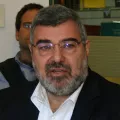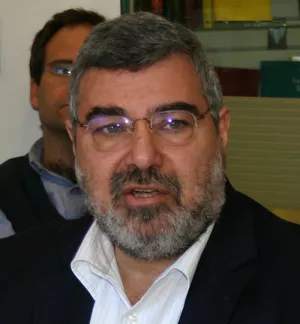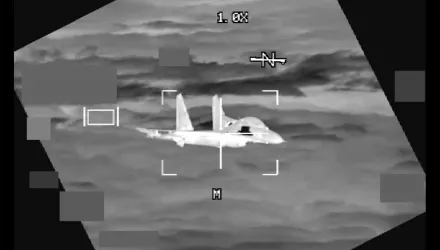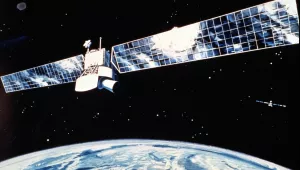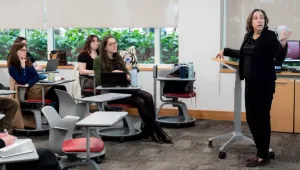"Maybe there is something in the water in Vienna that makes people act like adults. Whatever it is, the meetings this week in Vienna on Thursday and Friday suggest that several significant and positive changes are taking place across several conflict zones and stress points in the Middle East. The Vienna gatherings are so interesting because they touch on half a dozen different ideological or military conflicts that take place at several different levels. They all converge in the Middle East, and their epicenter is Syria, which is burning out of control and scorching everyone around it.
The different wars in Syria include the contentious U.S.-Russian relationship; battles between the Syrian government and a wide range of armed opposition forces trying to overthrow it; the fight between the “Islamic State” (ISIS) and everyone in the region and the world; the Iranian-Saudi-led and slightly amateurish regional cold war; and, Turkish-Kurdish tensions — to mention only the most obvious ones. Other important regional issues include Yemen, Israel-Palestine, Egypt, and the impact of low oil prices on all the principal players.
The participants in Vienna were very roughly arranged in two broad camps, one supporting the Syrian government of Bashar Assad and led by Russia and Iran-Hizbullah, and the other supporting the rebel groups trying to overthrow him and led by the United States and Saudi Arabia. The recent expansion of Russian, Iranian and Hizbullah direct military support for Assad has changed the political equilibrium, making it virtually impossible in the short term for the rebels to oust Assad. Vienna is the diplomatic acknowledgment of this reality, but the consequences of the current military stalemate remain unclear.
Also unclear are the bottom line positions of both sides. The immediate one of most interest is whether a genuine political transition will occur in Syria that ends the war and totally replaces the Assad regime and the remnants of its Baath Party and Alawite-heavy power structure; or, if only a superficial change is agreed to on the prevailing power structure, nudging Assad to step down one day soon after cease-fire agreements end the fighting, and allowing refugees and displaced Syrians to return home and rebuild.
The capacity of both sides to fudge the demarcation line between these two options has expanded considerably in recent weeks, because of several critical reasons. The urgency of ending the fighting and reversing the refugee flows is now a top priority, and Assad’s immediate fate is secondary to it. The Russian military involvement has forced new calculations about what the U.S.-Saudi-led camp can and cannot do in Syria. The erratic military support for the rebels by Middle Eastern and Western states has eliminated for now the possibility of a rebel victory over Assad. The agreement on Iran’s nuclear facilities/sanctions opens the door to engaging Iran diplomatically and exploring the peace plan it has proposed for Syria. The dangers posed by ISIS require ending the Syria war(s) and allowing the parties to work together to defeat it. And, the realization by most parties of the damage being done by the war in Yemen prods them all to seek a way out of that foolish and destructive situation by attempting to calm things down simultaneously in Syria and Yemen.
The most important thing about the talks in Vienna is that all the important external parties that drive this war were there at the table, most notably the United States, Russia, Iran, and Saudi Arabia. The absence of the Syrian rebel groups is a major deficiency, but it only slightly hampers the important political process that has been certified: direct talks by the main external war-drivers. The Syrian rebels are only as capable as their foreign backing, and right now that backing is fickle and erratic, and nowhere near the level of conviction displayed by Russia, Iran, and Hizbullah.
The recent successful negotiations on Iran’s nuclear facilities/sanctions provide the most compelling evidence of the value of direct talks, especially among protagonists that are killing each other or their proxies on the battlefields of Syria. Iran, Russia, and the United States learned many important things from those negotiations. The Saudis were not involved directly and tried unsuccessfully to stop the agreement, but now they have wisely agreed to attend the Vienna talks. They get their chance to join the adults in the control room of global diplomacy, rather than merely reacting to events around them that they do not like.
The Middle East is like a gigantic ocean liner on fire; Syria symbolically is the captain’s control tower. The main players in Syria are now all in the tower, trying to steer the burning ship into a port where the fires can be extinguished. Turning a giant ocean liner is a very slow process, but it has started in Vienna. The Syrian people must be allowed to determine their own fate one day soon, and that will be a happy day when it comes, some time down the road that has been embarked on in Vienna."
Khouri, Rami. “Vienna talks mark a historic moment for Syria and the region.” Agence Global, October 31, 2015

